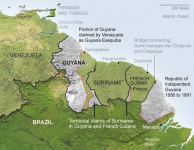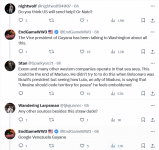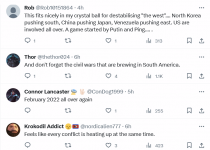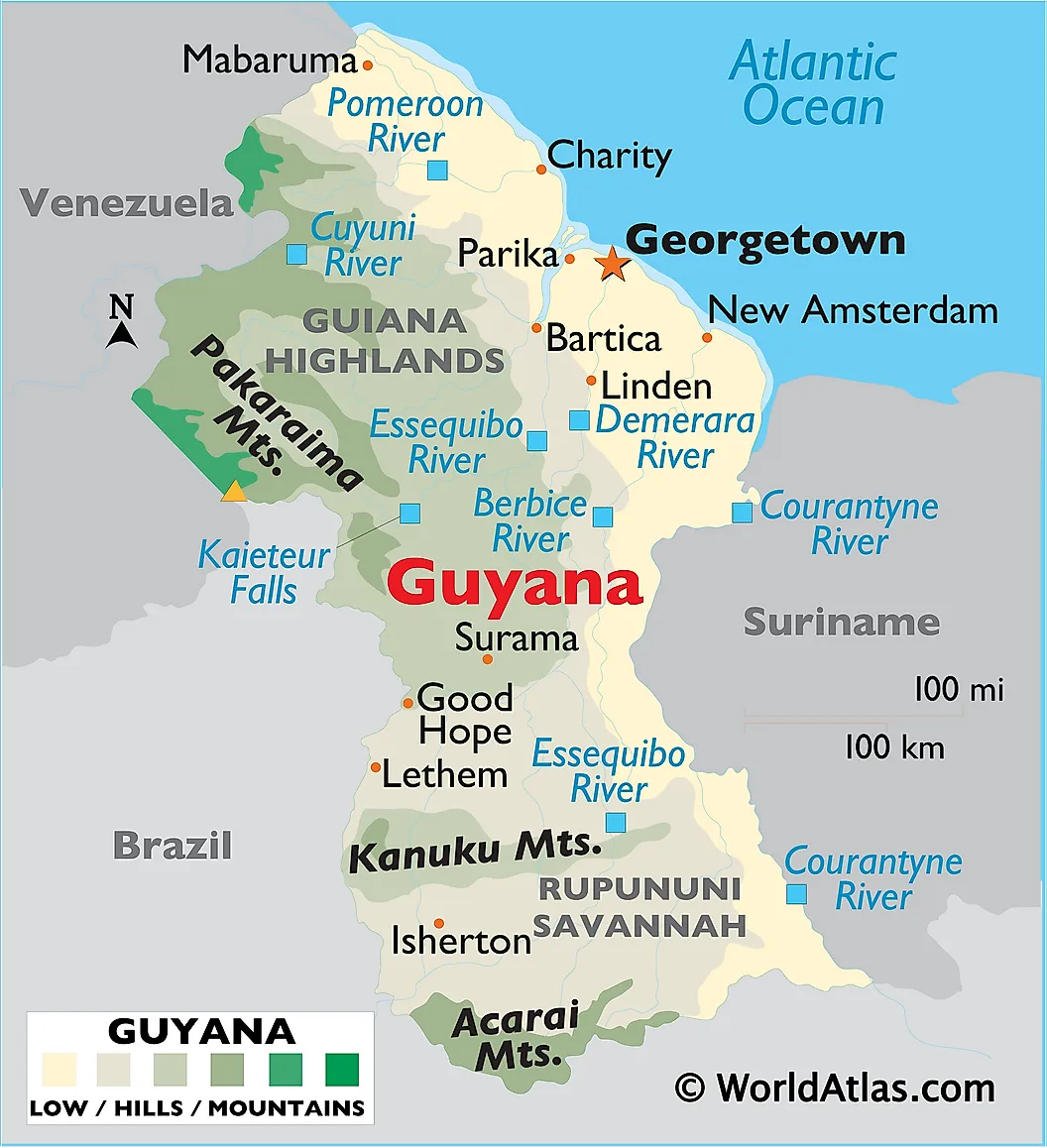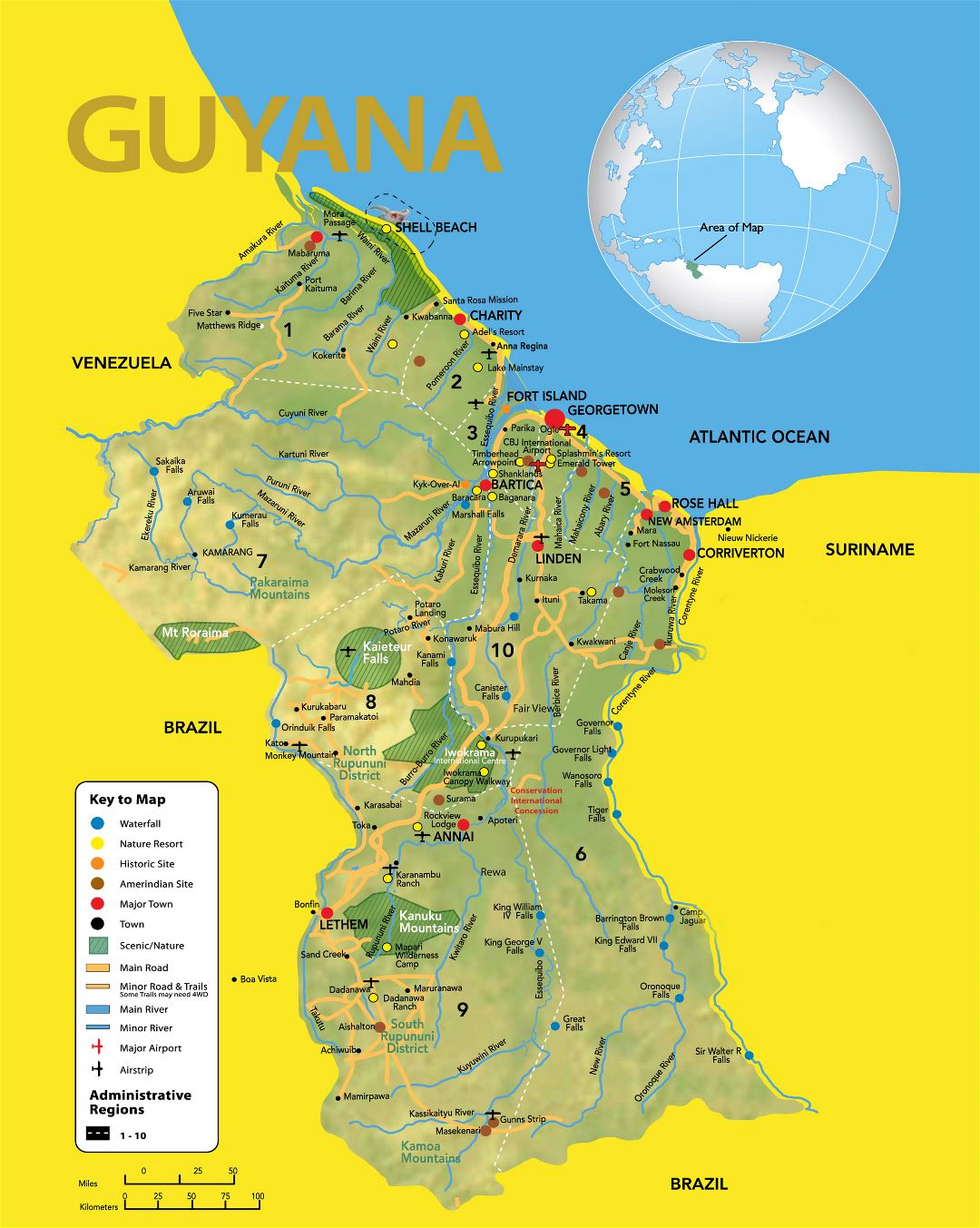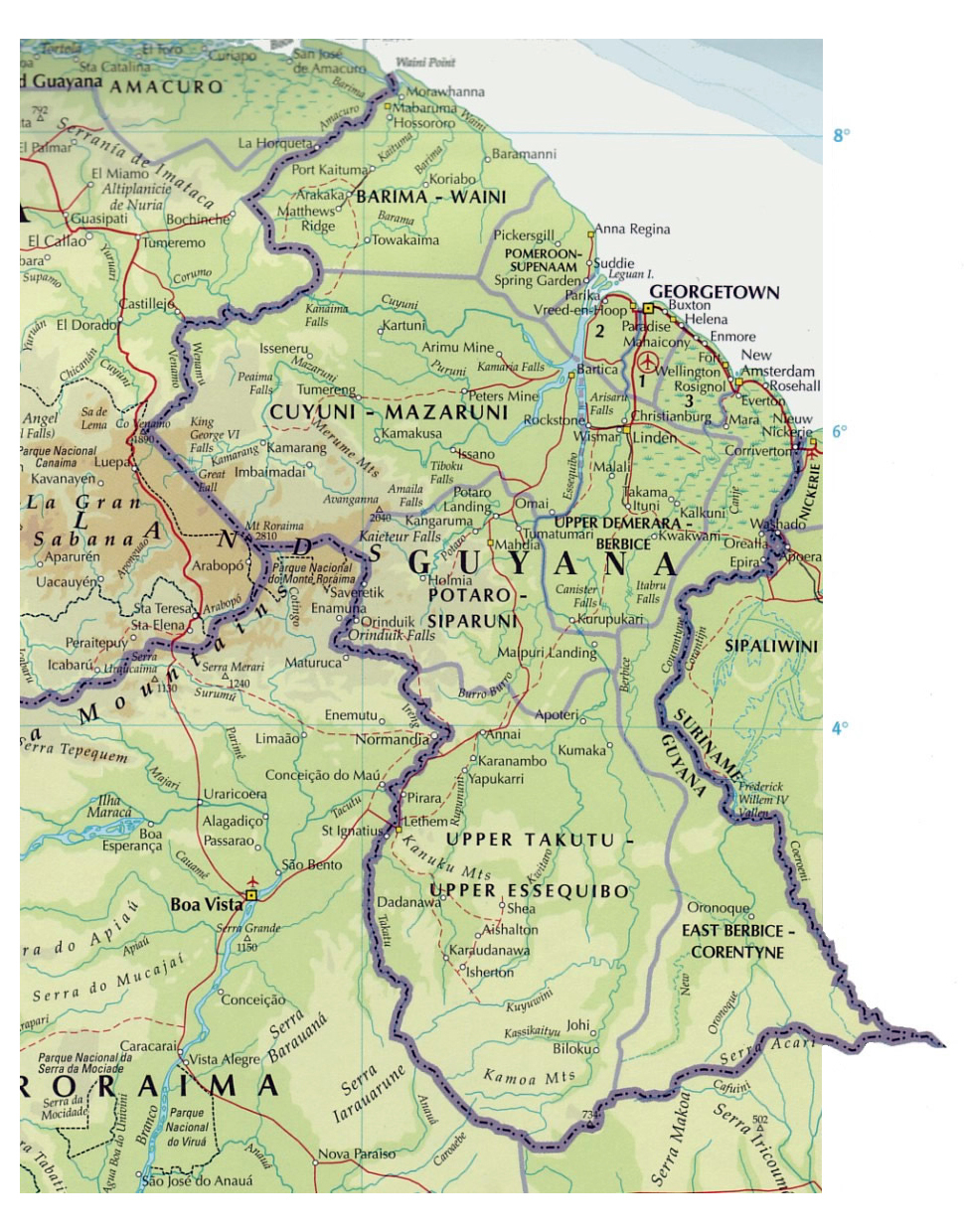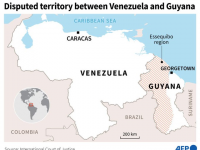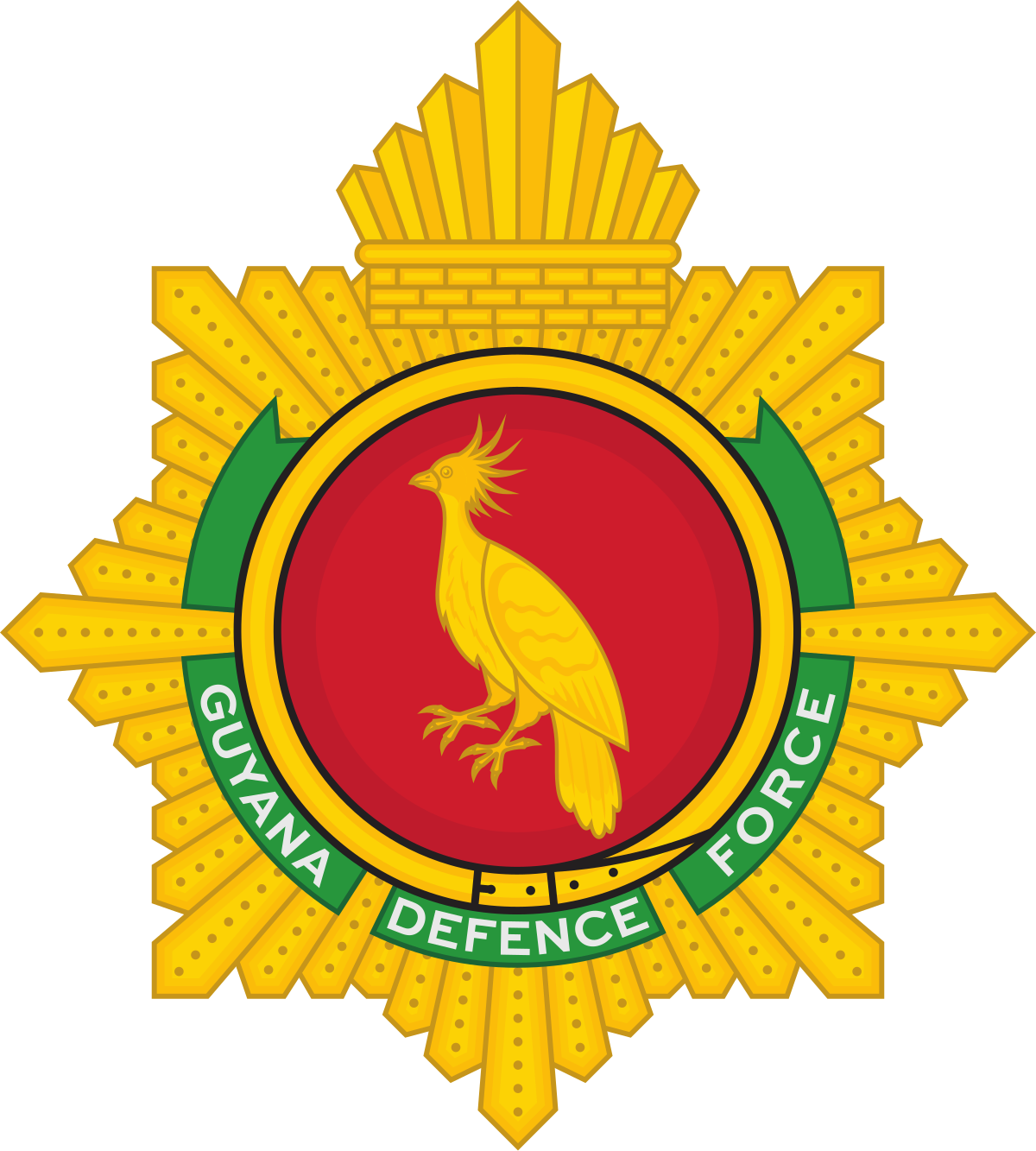Venezuela's planned vote over territory dispute leaves Guyana residents on edge | AP News
JUAN ARRÁEZ, REGINA GARCIA CANO
Updated 12:04 PM CST, November 29, 2023
SURAMA, Guyana (AP) — Congregants of an Anglican church in a sparsely populated rainforest village in Guyana gathered recently to bid on a bounty of bananas, squash and other produce during a community event. They sang hymns and rang a bell after each successful bid.
They offered grateful devotions typical of a harvest festival but also asked for peace for their community amid what they see as an existential threat. Their village, Surama, is part of Guyana’s Essequibo region — a territory larger than Greece and rich in oil and minerals that
Venezuela claims as its own and whose future it intends to decide Sunday with a referendum.
The practical and legal implications of the vote, which among other things calls for turning Essequibo into a Venezuelan state, remain unclear, but
the referendum has left area residents on edge.
“We are praying, we are hoping and we are having faith that nothing negative will come,” said Loreen Allicock, who led the congregation during the harvest festival. “We want to continue living a peaceful life in this beautiful land of ours.”
Venezuela’s
President Nicolás Maduro has thrown the full weight of his government into the effort, using patriotic rhetoric to try to summon voters to the polls to answer five questions over the territory, including whether current and future area residents should be granted Venezuelan citizenship.
Guyana sees the referendum as a case of annexation and asked the International Court of Justice on Nov. 14 to halt parts of the vote. The court has not issued a decision, but even if it rules against Venezuela, Maduro’s government intends to hold the election Sunday.
The 61,600-square-mile (159,500-square-kilometer) area accounts for two-thirds of Guyana. Yet, Venezuela has always considered Essequibo as its own because the region was within its boundaries during the Spanish colonial period, and it has long disputed the border decided by international arbitrators in 1899, when Guyana was still a British colony.
Venezuela’s commitment to pursue the territorial claim has fluctuated over the years. Its interest piqued again in 2015 when ExxonMobil announced it had found oil in commercial quantities off the Essequibo coast.
The latest chapter on the dispute has sowed anger among area residents, the majority of whom are Indigenous people, against Guyana’s government. Information on the referendum has reached them mostly through inaccurate social media posts that have only created confusion among the Guyanese.
“We feel neglected as the people of this land. Nothing is being done for us at the moment,” said Michael Williams, an Indigenous leader for the Essequibo village of Annai. “The government (...) only comes when they want our votes. Now, there’s this dispute. Nobody is here to tell us, ‘These are the issues. This may come. Let us prepare for it. We are negotiating. We hope for the best.’ Nobody is coming to tell us that.”
The disputed boundary was decided by arbitrators from Britain, Russia and the United States. The U.S. represented Venezuela on the panel in part because the Venezuelan government had broken off diplomatic relations with Britain.
Venezuelan officials contend the Americans and Europeans conspired to cheat their country out of the land and argue that a 1966 agreement to resolve the dispute effectively nullified the original arbitration.
Guyana, the only English-speaking country in South America, maintains the initial accord is legal and binding and asked the world court in 2018 to rule it as such.
Venezuelan voters on Sunday will have to answer whether they “agree to reject by all means, in accordance with the law,” the 1899 boundary and whether they support the 1966 agreement “as the only valid legal instrument” to reach a solution.
Maduro’s government held a mock referendum Nov. 19 to get voters acquainted with the issue, but it has not said how many voters participated or what the results were. Officials also have not offered a timetable or specific steps on how they would turn the Essequibo region into a Venezuelan state and grant area residents citizenship should voters approve the proposed measures.
Juan Romero, a lawmaker with the ruling United Socialist Party of Venezuela, told state media that one of the actions the government would have to pursue if people vote in favor of the measures is a constitutional reform to incorporate English as one of Venezuela’s official languages. Meanwhile, another ruling party lawmaker, William Fariñas, has claimed “Essequibans” already “feel Venezuelan.”
That, however, could not be further from the truth.
People in Essequibo are proud of their Indigenous heritage. They point to the names of landmarks, given in their native language, as an example of why they believe the region never belonged to Venezuela. And they insist they do not want their lives disrupted by the referendum.
The International Court of Justice is expected to issue a decision this week on Guyana’s request to halt parts of the referendum. But the court is still years away from ruling on Guyana’s broader request to deem the 1899 border decision as valid and binding. Judges accepted the case last April despite Venezuela’s opposition.
In the meantime, Essequibo resident Jacqueline Allicock has one question for Venezuelan voters: “Why would you want to take away something that doesn’t belong to you?”
____ Garcia Cano reported from Mexico City.
____
Follow AP’s coverage of Latin America and the Caribbean at
Latin American News | Latest Latin American News
Venezuela's planned vote over territory dispute leaves Guyana residents on edge
 bnn.network
bnn.network


